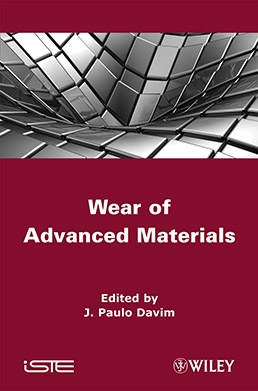
This book aims to provide information on recent advances into the wear of advanced materials.
In general, wear is currently defined as “the progressive loss of material from the operating surface of a body occurring as a result of relative motion at the surface”. It is related to surface interactions and more specifically to the form of contact due to relative motion. Wear is rarely catastrophic but does reduce the operating efficiency of machine components and structures.
At this time of economic crisis, this is a very important field of study because of the huge impact the wear of materials has on the economy.
The purpose of this book is to present a collection of examples illustrating the state of the art and research developments into the wear of advanced materials in several applications.
It can be used as a research book for a final undergraduate engineering course (for example into materials, mechanics, etc.) or as the focus of the effect of wear on advanced materials at a postgraduate level. It can also serve as a useful reference for academics, biomaterials researchers, mechanical and materials engineers, and professionals in related spheres working with tribology and advanced materials.
1. Carbon Fabric-reinforced Polymer Composites and Parameters Controlling Tribological Performance, Jayashree Bijwe and Mohit Sharma.
2. Adhesive Wear Characteristics of Natural Fiber-reinforced Composites, Belal F. Yousif.
3. Resistance to Cavitation Erosion: Material Selection, Jinjun Lu, Zhen Li, Xue Gong, Jiesheng Han and Junhu Meng.
4. Cavitation of Biofuel Applied in the Injection Nozzles of Diesel Engines, Hengzhou Wo, Xianguo Hu, Hu Wang and Yufu Xu.
5. Wear and Corrosion Damage of Medical-grade Metals and Alloys, Jae-Joong Ryu and Pranav Shrotriya.
J. Paulo Davim is Aggregate Professor in the Department of Mechanical Engineering at the University of Aveiro, Portugal and is Head of MACTRIB (Machining and Tribology Research Group). His main research interests include manufacturing, materials and mechanical engineering.